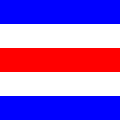Ⅽ
From Wiktionary, the free dictionary
See also: c and Appendix:Variations of "c"
 | ||||||||
| ||||||||
Character variations
 | ||||||||
| ||||||||
| ||||||||
Languages (54)
Translingual • English
Afrikaans • Albanian • Angami • Azerbaijani • Basque • Catalan • Central Franconian • Central Mazahua • Chinese • Czech • Dutch • Elfdalian • Esperanto • Estonian • Finnish • French • German • Heiltsuk • Hungarian • Ido • Indonesian • Irish • Italian • Kankanaey • Kashubian • Kwak'wala • Latin • Latvian • Lower Sorbian • Malay • Norwegian Bokmål • Norwegian Nynorsk • Nupe • Old English • Polish • Portuguese • Romani • Romanian • Saanich • Scottish Gaelic • Silesian • Skolt Sami • Slovene • Somali • Spanish • Swedish • Tagalog • Tashelhit • Turkish • Vietnamese • Welsh • Zulu
Page categories
Afrikaans • Albanian • Angami • Azerbaijani • Basque • Catalan • Central Franconian • Central Mazahua • Chinese • Czech • Dutch • Elfdalian • Esperanto • Estonian • Finnish • French • German • Heiltsuk • Hungarian • Ido • Indonesian • Irish • Italian • Kankanaey • Kashubian • Kwak'wala • Latin • Latvian • Lower Sorbian • Malay • Norwegian Bokmål • Norwegian Nynorsk • Nupe • Old English • Polish • Portuguese • Romani • Romanian • Saanich • Scottish Gaelic • Silesian • Skolt Sami • Slovene • Somali • Spanish • Swedish • Tagalog • Tashelhit • Turkish • Vietnamese • Welsh • Zulu
Page categories
Translingual
Etymology 1
From the Etruscan letter 𐌂 (c, ce), from the Ancient Greek letter Γ (G, gamma), derived from the Phoenician letter 𐤂 (g, giml), from the Egyptian hieroglyph 𓌙.
Letter
C (lower case c)
- The third letter of the basic modern Latin alphabet.
See also
- (Latin script): Aa Bb Cc Dd Ee Ff Gg Hh Ii Jj Kk Ll Mm Nn Oo Pp Qq Rr Sſs Tt Uu Vv Ww Xx Yy Zz
- (Variations of letter C): Ćć Ĉĉ Čč Ċċ C̄c̄ Çç Ḉḉ Ȼȼ Ƈƈ ɕ ᴄ Cc
- (select other variations) Ƈ ₡ ₵ ₢
- Other scripts: Г (ge), ג (gimel)
- For more variations, see Appendix:Variations of "c".
 C on Wikipedia.Wikipedia
C on Wikipedia.Wikipedia
Etymology 2
A standardization of Ɔ and C because the latter happens to be an abbreviation of Latin centum (“hundred”), from abbreviation of ƆIC, an alternative form of >I<, from tally stick markings resembling Ж (a superimposed X and I), from the practice of designating each tenth X notch with an extra cut.
Alternative forms
Numeral
C (upper case Roman numeral, lower case c)
- Roman numeral hundred (100)
- the hundredth (100th)
Usage notes
- With a bar over the numeral, i.e., as C̅, it represents one hundred thousand.
Coordinate terms
Derived terms
- English: c-note
See also
- Lesser Roman numeral symbol: L (“50”)
- Greater Roman numeral symbol: D (“500”)
- Roman numerals
Etymology 3
- (element symbol, carbon): abbreviation
- (metrology, coulomb): abbreviation
- (computing, hexadecimal 12): From its position as the twelfth element of the series {1, 2, 3, 4, 5, 6, 7, 8, 9, A, B, C, D, E, F}
Symbol
C
- (biochemistry) IUPAC 1-letter abbreviation for cysteine
- (clothing) Bra cup size.
- (computing, hexadecimal) The digit for 12.
- 0x0000000C
- (chemistry) Chemical symbol for carbon.
- (finance) Long-term bond credit rating by Moody's Investors Service, indicating that a bond is in default, with little prospect of debt recovery.
- (finance) Long-term bond credit rating by Fitch Ratings, indicating that a bond is low grade and on the verge of default.
- (genetics) IUPAC 1-letter abbreviation for any cytosine
- (linguistics) A wildcard for a consonant
- (mathematics) differentiable class
- C1 functions are differentiable once, and C2 functions are twice differentiable
- (mathematics) The constant of integration.
- (metrology) Symbol for coulomb, an SI unit of electric charge.
- (metrology) Symbol for degrees Celsius.
- Alternative form: °C
- 2019 December 2, Fiona Harvey, “Climate crisis: what is COP and can it save the world?”, in Katharine Viner, editor, The Guardian (in English), London: Guardian News & Media, →ISSN, →OCLC, archived from the original on 2019-12-02:
- Current commitments made by national governments under the Paris agreement fall far short of what is required – taken together, they would still condemn the world to an estimated temperature rise of more than 3C by the end of the century.
- 2022 October 27, Paloma Torres, quoting Potentially Petty/Hot Person, “Advice Column: Am I becoming hotter or just pettier? Paloma Torres answers the age-old question constantly on everyone's minds”, in The Eyeopener, volume 56, number 7 (in English), page 3:
- I’ve noticed my attitude just hasn’t been the vibe lately. Yesterday I totally lost it at a restaurant because my pasta was only 18 C, which is two degrees below normal room temperature—like two degrees! How could they?
- (physics) capacitance
- (Voice Quality Symbols) creak (vocal fry)
Gallery
- Letter styles
- Capital and lowercase versions of C, in normal and italic type
- Uppercase and lowercase C in Fraktur
See also
Other representations of C:
English
Afrikaans
Albanian
Angami
Azerbaijani
Basque
Catalan
Central Franconian
Central Mazahua
Chinese
Czech
Dutch
Elfdalian
Esperanto
Estonian
Finnish
French
German
Heiltsuk
Hungarian
Ido
Indonesian
Irish
Italian
Kankanaey
Kashubian
Kwak'wala
Latin
Latvian
Lower Sorbian
Malay
Norwegian Bokmål
Norwegian Nynorsk
Nupe
Old English
Polish
Portuguese
Romani
Romanian
Saanich
Scottish Gaelic
Silesian
Skolt Sami
Slovene
Somali
Spanish
Swedish
Tagalog
Tashelhit
Turkish
Vietnamese
Welsh
Zulu
Wikiwand - on
Seamless Wikipedia browsing. On steroids.




